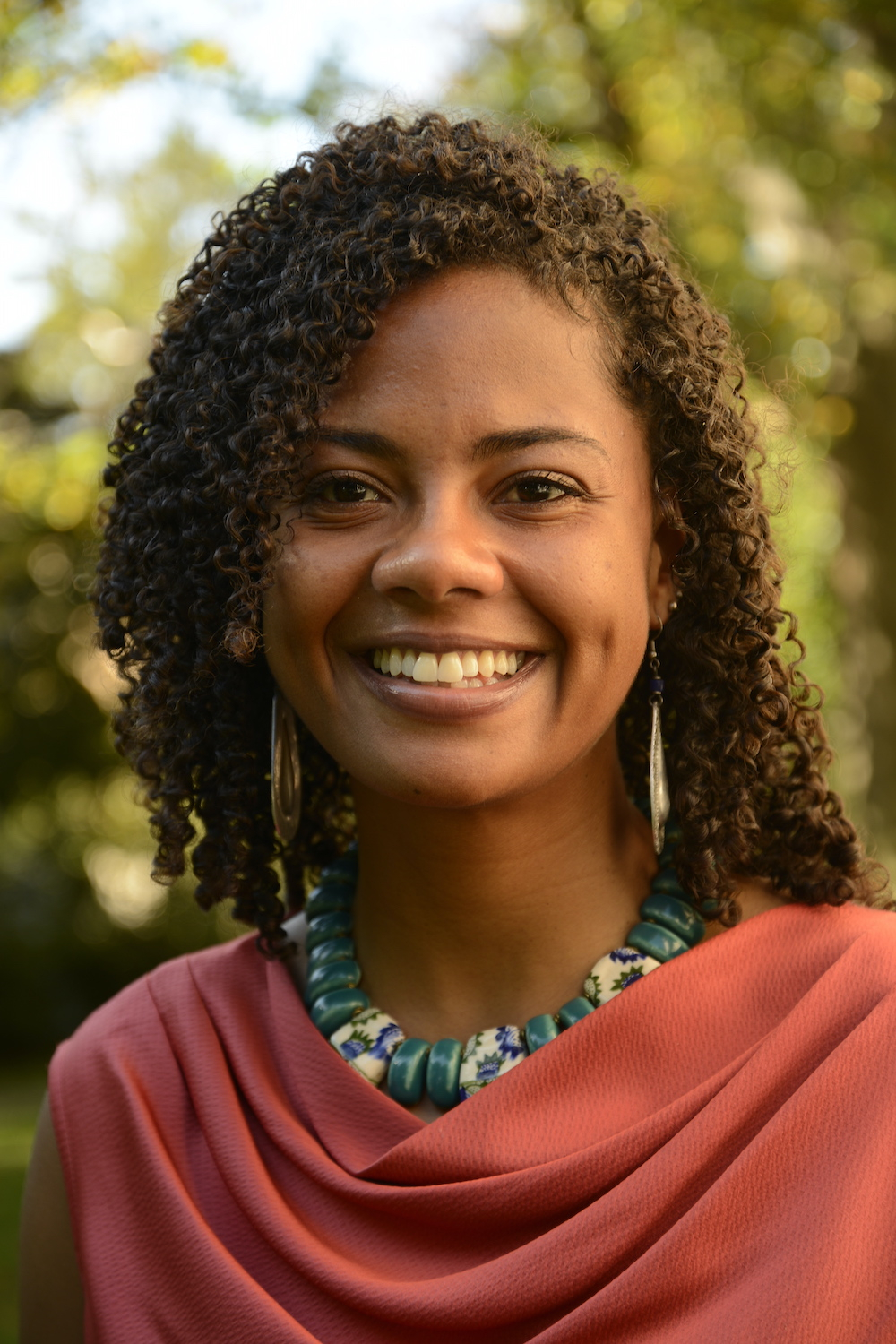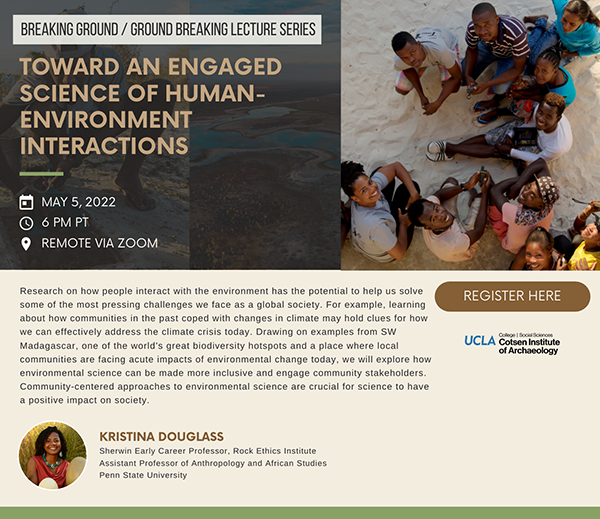Event: Toward an engaged science of human-environment interactions
Event Details
Kristina Douglass, Sherwin Early Career Professor in the Rock Ethics Institute and Assistant Professor of Anthropology and African Studies
Research on how people interact with the environment has the potential to help us solve some of the most pressing challenges we face as a global society. For example, learning about how communities in the past coped with changes in climate may hold clues for how we can effectively address the climate crisis today. Drawing on examples from SW Madagascar, one of the world’s great biodiversity hotspots and a place where local communities are facing acute impacts of environmental change today, we will explore how environmental science can be made more inclusive and engage community stakeholders. Community-centered approaches to environmental science are crucial for science to have a positive impact on society.
Kristina Douglass
 Kristina Douglass is an archaeologist who investigates how people, land-and seascapes co-evolve. She is the Joyce and Doug Sherwin Early Career Professor in the Rock Ethics Institute and Assistant Professor of Anthropology and African Studies at Penn State University. Sheis a Penn State Institutes for Energy and the Environment co-funded faculty member and a faculty affiliate of the Institute for Computational and Data Sciences. Douglass is also a Smithsonian Institution Research Associate. Her work is grounded in collaborations with local, Indigenous, and descendant (LID) communities as equal partners in the co-production of science, and the recording, preservation and dissemination of LID knowledge. Douglass and her collaborators aim to contribute long-term perspectiveson human-environment interactions to public debates, planning and policymaking on the issues of climate change, conservation, and sustainability. Since 2011 Douglass has directed the Morombe Archaeological Project (MAP), based in the Velondriake Marine Protected Area. This territory is home to diverse LID communities, including Vezo fishers, Mikea foragers and Masikoro herders. The MAP team is made up of Velondriake LID community members, and an international group of graduate students and postdoctoral researchers. The MAP is anchored at Penn State to the Olo Be Taloha Lab (@OBTLab andhttps://obtlab.la.psu.edu) for African Environmental Archaeology, which Douglass also directs. Douglass is a mother, singer, dancer, Capoeirista, SCUBA diver and avid gardener, all of which intersect in essential ways with her work as an archaeologist.
Kristina Douglass is an archaeologist who investigates how people, land-and seascapes co-evolve. She is the Joyce and Doug Sherwin Early Career Professor in the Rock Ethics Institute and Assistant Professor of Anthropology and African Studies at Penn State University. Sheis a Penn State Institutes for Energy and the Environment co-funded faculty member and a faculty affiliate of the Institute for Computational and Data Sciences. Douglass is also a Smithsonian Institution Research Associate. Her work is grounded in collaborations with local, Indigenous, and descendant (LID) communities as equal partners in the co-production of science, and the recording, preservation and dissemination of LID knowledge. Douglass and her collaborators aim to contribute long-term perspectiveson human-environment interactions to public debates, planning and policymaking on the issues of climate change, conservation, and sustainability. Since 2011 Douglass has directed the Morombe Archaeological Project (MAP), based in the Velondriake Marine Protected Area. This territory is home to diverse LID communities, including Vezo fishers, Mikea foragers and Masikoro herders. The MAP team is made up of Velondriake LID community members, and an international group of graduate students and postdoctoral researchers. The MAP is anchored at Penn State to the Olo Be Taloha Lab (@OBTLab andhttps://obtlab.la.psu.edu) for African Environmental Archaeology, which Douglass also directs. Douglass is a mother, singer, dancer, Capoeirista, SCUBA diver and avid gardener, all of which intersect in essential ways with her work as an archaeologist.



